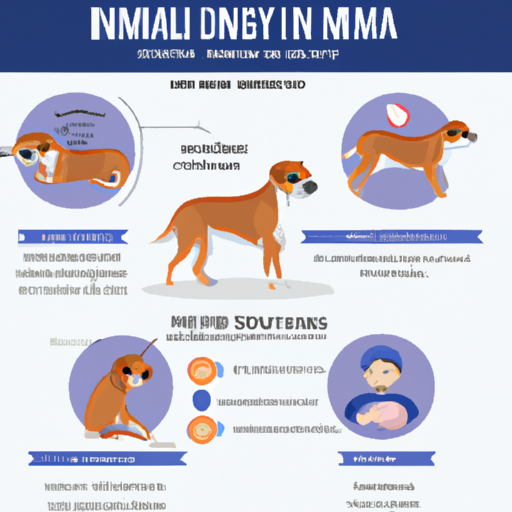As a caregiver, it can be both informative and reassuring to understand the health conditions your dog might face. One such condition is Immune Mediated Hemolytic Anemia or IMHA. This piece is designed to help you understand what IMHA is, its symptoms, causes, diagnoses, treatment, and prevention, with a handy FAQ section at the end.
Understanding IMHA
IMHA is a serious and often life-threatening condition, where the immune system of your dog mistakenly attacks its own red blood cells. This can lead to anemia, a condition marked by a lack of sufficient red blood cells to carry oxygen to the body’s tissues. It’s like your dog’s body is at war with itself, a civil war of sorts, where the soldiers (immune system) are attacking their own (red blood cells).
Symptoms of IMHA
Now, you might be wondering, “How would I know if my dog has IMHA?” Like any war, there are signs and signals that something isn’t right. Below is a list of symptoms to watch out for:
- Weakness and lethargy
- Loss of appetite
- Rapid breathing
- Jaundice (yellowing of the skin, gums, and whites of the eyes)
- Dark colored urine
- Fever
Causes of IMHA
The causes of IMHA can be as complex as the condition itself. It can be primary, meaning there is no apparent cause, or secondary, where it results from another condition such as infection, cancer, or exposure to certain drugs or toxins. It’s like a mystery novel where sometimes the villain shows up out of nowhere, and sometimes there’s a trail leading right to them.
Diagnosing IMHA
Diagnosing IMHA can be a complex process, much like piecing together a jigsaw puzzle. Your vet will need to conduct a thorough physical examination and run several tests. Below is a table outlining the common tests and their purposes:
| Test | Purpose |
|---|---|
| Blood test | To determine the number of red blood cells |
| Coomb’s test | To detect antibodies that are attacking red blood cells |
| Urinalysis | To assess kidney function and look for blood in the urine |
| X-rays and ultrasounds | To check for underlying conditions |
Treating and Preventing IMHA
Unfortunately, there is no surefire way to prevent IMHA, just as you can’t always prevent a storm from coming. But once diagnosed, treatment focuses on suppressing the immune system’s attack on red blood cells, addressing the underlying cause (if any), and managing symptoms. This might include steroids, other immunosuppressants, blood transfusions, oxygen therapy, and medications to prevent or treat complications.
Frequently Asked Questions
You probably have a lot of questions. Here are some frequently asked ones:
Q: Is IMHA contagious?
A: No, IMHA is not contagious. It’s an immune system disorder, not an infectious disease.
Q: Can IMHA be cured?
A: While IMHA can be managed with treatment, there is no definitive cure.
Q: Is IMHA painful for my dog?
A: IMHA itself is not typically painful, but some symptoms like weakness and lethargy can cause discomfort.
Q: Can my dog live a normal life with IMHA?
A: Many dogs can lead a high-quality life with proper management of IMHA.
Remember, as a caregiver, your awareness and prompt action can make a huge difference in your dog’s health. So, arm yourself with knowledge and face the challenge head-on.



